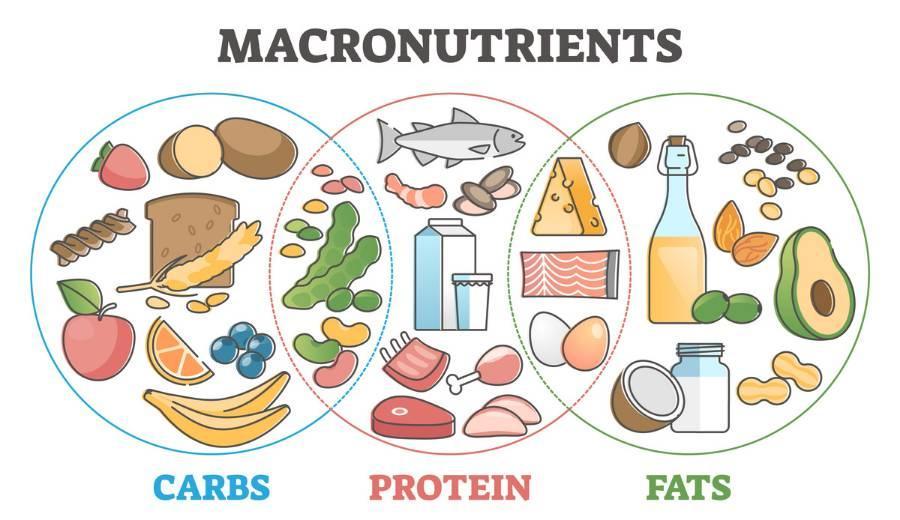In the ever-evolving landscape of health and nutrition, low-carb diets have emerged as both a popular trend and a topic of heated debate. From keto enthusiasts to skeptical nutritionists, opinions on the sustainability of these diets for long-term mental and physical wellness vary widely. As the world becomes increasingly health-conscious, individuals are seeking dietary solutions that promise more than just weight loss; they are searching for pathways to holistic well-being. But can cutting down on carbohydrates truly offer a sustainable lifestyle choice that supports both body and mind? This article delves into the intricacies of low-carb diets, exploring their potential benefits and drawbacks, and examining whether they can serve as a viable blueprint for lasting health and wellness.
Understanding the Impact of Low-Carb Diets on Brain Function
Recent research has shed light on how carbohydrate intake influences brain function. The brain primarily relies on glucose as its main source of energy. When carbohydrate consumption is drastically reduced, the body enters a state of ketosis, where ketones become the primary fuel. This metabolic shift can have varying effects on cognitive performance, mood, and overall brain health. While some studies suggest that ketones may offer neuroprotective benefits and improve focus and mental clarity, others caution against potential drawbacks, such as brain fog and reduced mental sharpness during the adaptation phase.
- Energy Levels: Low-carb diets can initially cause a dip in energy, impacting concentration and cognitive tasks.
- Mood Swings: The transition to ketosis may lead to irritability or mood fluctuations.
- Long-term Effects: The sustained impact of low-carb diets on brain health remains an area of active investigation.
Understanding these nuances is crucial for individuals considering low-carb diets as a means to enhance both physical and mental wellness. The key lies in personal experimentation and professional guidance to ensure the diet supports both brain function and overall health effectively.

Balancing Physical Energy and Nutritional Intake with Low-Carb Diets
When embarking on a low-carb journey, finding the right equilibrium between physical energy and nutritional intake is crucial. While these diets are renowned for their potential in weight management and blood sugar control, they require careful planning to ensure the body receives all necessary nutrients. Carbohydrates are a primary energy source, so reducing them can lead to decreased energy levels if not managed properly. Therefore, it’s essential to incorporate alternative energy sources such as healthy fats and proteins.
- Healthy Fats: Avocados, nuts, seeds, and olive oil provide sustained energy.
- Proteins: Lean meats, fish, and plant-based proteins like tofu and legumes help maintain muscle mass and energy levels.
- Fiber: Although typically associated with carbs, fiber-rich vegetables can aid digestion and enhance satiety.
To support mental wellness, it’s important to include foods rich in omega-3 fatty acids and antioxidants, which can be found in fatty fish and colorful vegetables. These nutrients are pivotal in maintaining cognitive function and mood stability. Balancing these elements can make low-carb diets not only sustainable but also beneficial for both mental and physical wellness.

Exploring Long-Term Health Implications of Carbohydrate Restriction
Understanding the long-term effects of carbohydrate restriction is crucial for those considering a low-carb lifestyle. Studies suggest that reducing carb intake can lead to initial weight loss and improved blood sugar levels. However, there are potential long-term health implications that require careful consideration.
- Metabolic Adaptations: Prolonged carbohydrate restriction can lead to metabolic adaptations. The body might become more efficient at burning fat for fuel, but this could also lead to reduced insulin sensitivity over time.
- Nutrient Deficiencies: Eliminating or drastically reducing carbs may result in a lack of essential nutrients, such as fiber, vitamins, and minerals found in fruits, vegetables, and whole grains.
- Mental Health: Carbohydrates play a role in serotonin production, a neurotransmitter that affects mood. Long-term restriction might impact mental health, potentially leading to increased feelings of anxiety or depression.
While some individuals thrive on low-carb diets, others may experience adverse effects. Personalization and monitoring by healthcare professionals are essential to ensure that any dietary approach supports both mental and physical wellness in the long run.

Practical Tips for Maintaining Wellness on a Low-Carb Diet
Navigating a low-carb diet while maintaining both mental and physical wellness requires a strategic approach that embraces flexibility and balance. Begin by focusing on whole, nutrient-dense foods that provide essential vitamins and minerals. Incorporate a variety of colorful vegetables, lean proteins, and healthy fats to ensure you’re getting a broad spectrum of nutrients.
Consider the following practical tips to enhance your wellness journey:
- Stay Hydrated: Adequate water intake is crucial for maintaining energy levels and supporting cognitive function.
- Mindful Meal Planning: Prepare meals in advance to avoid the temptation of high-carb options, ensuring you have delicious and satisfying low-carb meals ready.
- Listen to Your Body: Pay attention to how different foods make you feel, and adjust your diet to better suit your personal wellness needs.
- Include Regular Exercise: Engage in physical activities that you enjoy, which can help improve mood and support metabolic health.
- Get Quality Sleep: Prioritize rest to allow your body to recover and maintain hormonal balance, which is essential for overall well-being.
Balancing these elements can help create a sustainable low-carb lifestyle that nurtures both your mind and body, making the diet not only manageable but also enriching.
